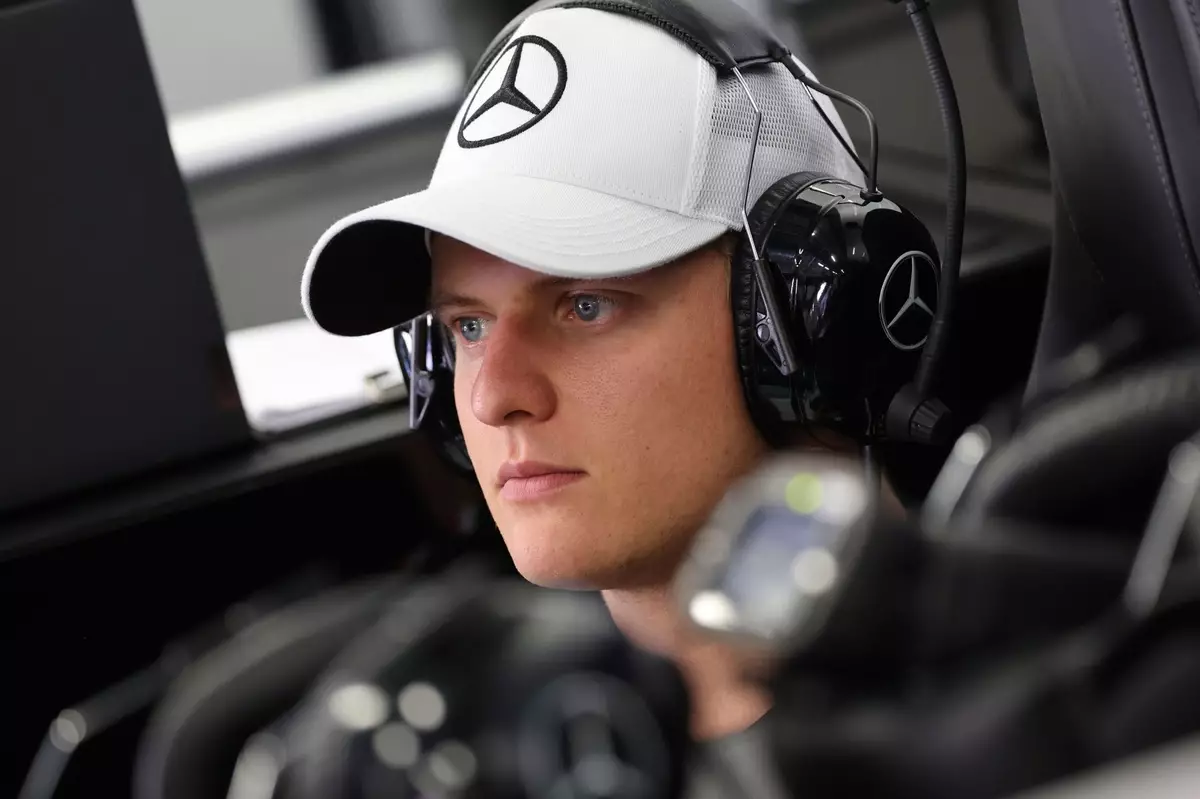Mick Schumacher’s journey in Formula 1 has been marked by both promise and adversity. Having secured a seat with Haas in 2021, his stint ended unceremoniously after the 2022 season, relegating him to a reserve role at Mercedes. Now, as the 2025 season approaches, Schumacher stands at a critical juncture, with a potential opportunity arising within Audi’s Sauber team. The changing dynamics within F1 often result in a scramble for positions as teams adjust their line-ups, and Schumacher’s situation exemplifies this reality. His previous aspirations of securing a drive with Alpine fell short when the team opted for rookie Jack Doohan, leaving the German driver seemingly out in the cold. However, recent developments indicate that Schumacher is far from finished in the pursuit of his F1 dreams.
Audi, under the leadership of new chief Mattia Binotto, is focused on crafting a competitive team capable of challenging established rivals. Binotto’s strategic vision recognizes the dual path ahead: youthful exuberance led by emerging talent versus the benefit of seasoned experience to navigate the complexities of constructing a new formula racing team. His remarks suggest that the selection will not purely be driven by immediate performance metrics but rather will weigh long-term goals and team growth. Binotto’s reference to the “Everest” of the team’s ambitions highlights the magnitude of the challenge at hand.
The prospect of Schumacher joining forces with experienced driver Nico Hulkenberg remains tantalizing. Their combined experience and talent could forge a formidable partnership that might elevate the team’s performance. As Binotto evaluates Schumacher, he leans on a history that includes a familiarity with the driver’s capabilities, having observed him during his time with the Ferrari Driver Academy. Binotto’s acknowledgment of Schumacher as a viable candidate paints a hopeful picture for the young driver, while simultaneously underscoring the competitive nature of F1 team selections.
In the high-stakes environment of Formula 1, factors influencing driver selection extend beyond sheer talent alone. The dynamics of experience, mentorship, teamwork, and the existing competitive landscape play crucial roles in trackside decisions. Amid this backdrop, Schumacher’s potential return raises questions about the balance between investing in youth versus solidifying the team with recognized drivers. Both parties have daunting challenges; for Schumacher, it’s about reclaiming his rightful place, while Audi seeks to establish itself in a league dominated by juggernauts with years of legacy backing.
Binotto emphasizes that Audi’s journey towards championship contention will not be instantaneous, reflecting on the paths of long-established teams that took many years to reach the summit. His insights into the historical context of F1—drawing comparisons to the eras of Jean Todt and Mercedes—illustrate the need for patience and strategic planning in achieving success. He hints at a timeline of five to seven years for Audi to fully position itself as a formidable force in F1, akin to the meticulous groundwork laid by predecessors.
The Importance of Investing in Young Talent
As discussions surrounding Schumacher’s future continue, the overarching importance of nurturing young talent within the sport emerges as a central theme. While experience is valuable, the infusion of fresh talent often inspires innovation and competitive spirit within a team. Binotto’s intention to prioritize the development of young drivers aligns with a broader trend observed across the grid, where established teams are increasingly investing in driver academies and developmental programs. For Schumacher, if chosen, this opportunity would not only signify a return to F1 but also place him in a position to influence the next generation of racing stars.
As the offseason progresses, the remaining question lies in whether Audi will make a decisive move concerning Schumacher. If chosen, he must overcome the pressure of expectations while simultaneously rising to the occasion as part of a burgeoning team. The narrative surrounding Mick Schumacher is one of resilience, a reflection of both his character and commitment to motorsport. Whether this opportunity materializes into a full-fledged comeback remains to be seen, but the prospect alone illustrates the ever-evolving landscape of Formula 1, where chances can emerge from the most unexpected circumstances.

